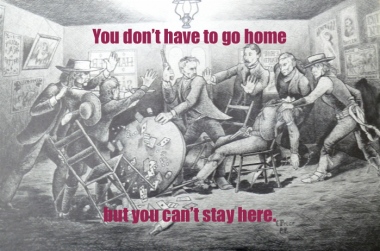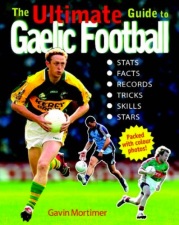I joined Facebook in the midst of the 2008 presidential election. It was super fun, especially for a work-at-home parent of young children who was craving a little water cooler conversation. I could chat with my carefully curated group of 25 or so friends, mocking this or that candidate mercilessly, and catch up with my old college buddies and former colleagues at the same time.
Over the past decade, Facebook has grown and changed, chipping away at the privacy rules (remember when you could hide yourself from “friends of friends”?) and connecting us to everyone and anyone we could possibly be connected too. That has value—it’s like an interactive white pages, really—but it has become increasingly difficult to maintain a wall of separation between different groups of people. Yes, you can (and should) create private groups for specific interests and conversations. But I found that my main feed had started to resemble a bar at four a.m., full of drunks picking fights, and I think I may have been one of the drunks. It was time to shut up and go home.

The Internet is a perpetual outrage machine. It’s like all these years of 24 hour cable news monster-shoutery has led us to believe that being engaged means injecting our opinions into every conversation, shaming those who think differently, or proving our superior intellect and belief system at every opportunity. And Facebook has given us this forum in which we can do that quickly, thoughtlessly, and without having to look anyone in the eye. We post, we share, we reprimand, we tally up “likes.” And I felt like I was part of it, boiling my opinions down to pithy (and in my defense, usually quite witty) little comments geared toward schooling everyone else in The Way I Think Things Ought to Be. Anyone who feels that their opinions are being attacked is just going to hold on to them even tighter, even more irrationally. Even worse, those who feel conflicted on these issues feel irritated, angry, or hurt when other people disrupt their Facebook feeds with things they really don’t want to think about at the moment.

You can spare me your thoughts on Congress.
©narrowbackslacker
At the same time, I was finding that some of the crap people posted was making my blood boil. Articles that made me mad because they were wrong. Articles that made me mad because they were right. Urban myths and unverified claims. Monster shouting.

So, I stopped.
I started thinking about any post that annoyed me, and decided not to put up posts like that. I tapped out on all political conversations on Facebook.
I call it the Outrage Detox. It’s a multi-step program. Every time I log in to Facebook, I try to remind myself to do following things:
1. Clarify your context. Facebook may have felt like an intimate cafe where you could trade barbs with like-minded friends in 2008, but by 2012 it was more like a crowded auditorium full of people you kind of know. Those are two very different contexts. And as I am constantly reminding my kids, context matters. If I want to rant, or read rants, there are other venues (like Twitter, or private forums, or actual face-to-face conversations) that are more appropriate. Facebook is a room full of people with whom I am sometimes only loosely connected; it should be a polite and friendly place. I wouldn’t launch into politics or religion at a PTA meeting or on line at the grocery store, so I shouldn’t do that on Facebook either.
2. Mind your manners. There are nanas and children in the room. Be polite. I admit, I still embrace sentence enhancers; my people (and hopefully anyone who reads this blog) has learned to live with my potty mouth. But I do try to think about what I’m actually saying, and wheter it is something that might to hurt someone’s feelings, or put them on the defensive. I don’t care if people hide/unfriend me, but I don’t want to actively accost anyone with nonsense that will do little more than put them in a bad mood.
3. Filter your feed. This is America. People have a right to say whatever they want, with very few limitations. I’m all for it. But we also have a right not to listen to them. So, while I firmly—no, make that fiercely—believe that Charlie Hebdo has a right to publish any cartoon they want, I also would never read or buy a magazine as mean spirited as Charlie Hebdo appears to be. In the same way, I can just hide the opinions of people on Facebook who appear to be mean or stupid or wrong. In fact, it’s my responsibility to do that as a consumer in the marketplace of ideas.
4. Do not engage. We all know how annoying subway preachers are, and how sometimes you are just stuck on a train with no choice other than to hear them. But on Facebook, you can shut people out, if not necessarily down, but just hitting a button. I started hiding “friends” who annoy me and I bite my tongue when someone posts something that offends me (and even when it’s something that I wholeheartedly agree with, to tell the truth).
5. Take your politics (and/or religion) elsewhere. If I want to rant, I can write a letter to a newspaper or congressperson or post on a moderated or private forum. I can contribute to a cause or work for one. I can tweet my thoughts to those who are actually interested in them. I can discuss things with people in person. I’ve done all of these things. We can be politically engaged without hitting people with a virtual baseball bat while they’re trying to enjoy their morning coffee. If I want to support a cause on Facebook, a silent show of solidarity (like quietly changing a profile pic) shows where I stand without pressuring others to take any stand at all.
6. You don’t need to unfriend people. Just because I think someone is a wing nut doesn’t mean I won’t pick their kid up from daycare in a pinch or keep them in my thoughts and prayers when they’re dealing with a loss or health crisis. Facebook is a useful tool for keeping in touch with a large community in important and non-intrusive ways. People can get in touch with me without knowing my phone number or private email address, and that’s a good thing.
7. Refine your media diet. Facebook is not the only culprit in the perpetual outrage machine. I’ve had to unfollow monster shouters on twitter, and avoid 24 hour cable news AT ALL COSTS. Seriously, whether you’re a Maddow or an O’Reilly, that shit is no good for your soul. Block it from your TV and only allow yourself news sources that do actual reporting (not just commentary) and at least try to be objective (Don’t worry, you can still catch the best bits via the Internet). And for God’s sake, unless you are truly destitute, be willing to pay at least a little for your Internet news. “News” sources that are financed entirely by clicks are, by design, going to be more monster shouty than those that are paid for by actual customer sales or member contributions.
8. Use Facebook for what it does best. I have considered cutting Facebook loose, but ultimately determined that just can’t quit it. But now I use it for what I feel like it does best: It’s such a simple way to keep in touch with far-flung friends and family in almost real time, and it’s a great channel for following hyperlocal or niche news. Oh, and #ThrowbackThursday is a great way to share memories with old friends while decluttering your house.
9. Never, ever, ever read the comments. Especially when looking at unmoderated feeds—do not give monster shouters, haters, or mean people an audience.
1o. Get back to work (or life). For me, the worst thing about the Interwebs is that it is is just a huge distraction. All that hamster-wheeling over things that, yes, do matter (like government and crime and just mean people) is actually sucking time and energy away from things that really, really, really matter to me in a much more immediate way. Sure, I need to be an informed citizen/voter, but other things—like spending time with my kids, or earning a living so I can feed/clothe them—are a bit more important in terms of my hierarchy of needs.
For the record, I do think that in the aggregate, the Internet will prove to be a game changer for democracy, in a good way. I just think that right now, we are in the midst of social media’s awkward adolescence, and we need to teach it how to be an adult. That means verifying information before we repeat (or repost) it. It means taking the time to consider alternative information before we form an opinion. And more often than not, I think it means—or should mean—keeping our opinions to ourselves and respecting not necessarily the opinions of others, but their right to have those opinions. But it also means we have the right to say that we do not want to hear those opinions, and politely shutting down (or ignoring) monster shouting talking heads.
Anyway, I’ve been at this Outrage Detox business for about six months. It’s been gradual, and I’m not saying I haven’t slipped up. Like anyone in a program, I take it one day at a time and repeat the Serenity Prayer when I find myself wanting to throat punch a troll.


















